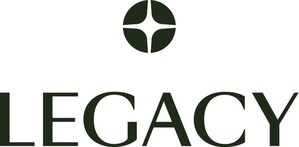Collection of Manuscripts Dedicated Solely to Addressing Tobacco Control for Diverse Populations
WASHINGTON, May 2, 2011 /PRNewswire-USNewswire/ -- New research published today as a special issue in the American Journal of Health Promotion shows that population-based approaches to smoking cessation – mass media campaigns and smoking quitlines – can positively impact quitting behaviors among racial/ethnic minority and low socioeconomic status (SES) smokers, with varying effects across these groups.
(Logo: http://photos.prnewswire.com/prnh/20101101/DC86294LOGO)
The special issue, "Tobacco Control Among Diverse Populations," includes 15 papers that provide insight into how to effectively reduce tobacco's impact on diverse populations who are disproportionately affected by tobacco use, a topic about which little is known. In this special issue, researchers looked at the use and efficacy of various evidence-based interventions among diverse populations, including African Americans and Hispanics.
"We still have a lot to learn about how to reduce tobacco's impact on diverse populations in the United States. This research serves to identify ways in which public health can successfully reach out to racial/ethnic minorities and low SES populations who are more burdened with smoking-related diseases and death," said Pebbles Fagan, Ph.D., M.P.H., Health Scientist, Tobacco Control Research Branch, National Cancer Institute.
Socioeconomic differences, historical factors, and cultural practices, as well as aggressive marketing by the tobacco industry, have all contributed to a higher rate of tobacco use and related disease in certain populations. For example, African Americans experience higher rates of lung cancer although they tend to smoke fewer cigarettes per day than other groups. Those with less than a high school education have higher smoking rates and lower quit rates than smokers with a high school degree or higher.
One study from the special journal issue confirms that exposure to Legacy's national cessation campaign, EX®, increased cessation-related attitudes among Hispanics and smokers with less than a high school education. Furthermore, exposure to EX was associated with increased quit attempts among African Americans and smokers with less than a high school education. The data indicates that mass media campaigns, when designed for racial/ethnic minorities and low SES groups, can help facilitate quitting.
"The data are extremely useful for planning national cessation campaigns like EX, as well as other population-based tobacco interventions. We want to be sure we can reach as many smokers as possible with evidence-based methods, especially those who are most at risk for tobacco-related health consequences," said Donna Vallone, Ph.D., M.P.H., Senior Vice President for Research and Evaluation at Legacy.
The special issue also includes a study that examines 18 years of data from the California Smokers' Helpline, which finds that African American adult smokers had higher quitline utilization rates as compared to White adult smokers in California. "Telephone counseling is free and convenient, provides a degree of anonymity for participants, and can encourage program utilization among those who would not normally seek help", said Shu Hong Zhu, Ph.D., Professor, Department of Family and Prevention Medicine, University of California, San Diego. This study also found that compared to Whites, African Americans who called the quitline reported higher rates of awareness of the quitline from mass media campaigns.
"The papers in this special issue further reinforce the importance of appreciating within group as well as between group differences in smoking and cessation patterns. For example, Asian and Hispanic American ethnic groups have unique smoking and quitting patterns based on country of origin and acculturation. Accounting for within group differences can better inform future prevention and cessation efforts in sociodemographic and cultural subgroups," said Kenneth Resnicow, Ph.D., Professor, University of Michigan School of Public Health.
"It is in the best interest of public health to be able to target communities in an effort to effectively reduce disparities in access to tobacco prevention and cessation services. This special supplement underscores the need to provide accessible tobacco prevention and cessation services, including exposure to anti-tobacco mass media, to diverse populations," said Cheryl G. Healton, Dr.P.H., President and CEO at Legacy.
Legacy is dedicated to building a world where young people reject tobacco and anyone can quit. Located in Washington, D.C., the national public health organization helps American live longer, healthier lives. Legacy develops programs that address the health effects of tobacco use, especially among vulnerable populations disproportionately affected by the toll of tobacco, through grants, technical assistance and training, partnerships, youth activism, and counter-marketing and grassroots marketing campaigns. The foundation's programs include truth®, a national youth smoking prevention campaign that has been cited as having contributed to significant declines in youth smoking; EX®, an innovative public health program designed to speak to smokers in their own language and change the way they approach quitting; and research initiatives exploring the causes, consequences and approaches to reducing tobacco use. The American Legacy Foundation was created as a result of the November 1998 Master Settlement Agreement (MSA) reached between attorneys general from 46 states, five U.S. territories and the tobacco industry. Visit http://www.legacyforhealth.org/.
SOURCE Legacy
WANT YOUR COMPANY'S NEWS FEATURED ON PRNEWSWIRE.COM?
Newsrooms &
Influencers
Digital Media
Outlets
Journalists
Opted In





Share this article